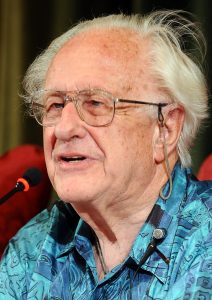The Civil War between the Liberation Tigers of Tamil Eelam (LTTE) and Government of Sri Lanka (SL) ended on the 18th of May 2009. However we are still to inquire whether a military defeat of the LTTE was successful in bringing peace to the war torn island of Sri Lanka. In irenology – study of peace the concept is defined as ‘absence of dissension, violence, or war’ (Stark, 1968). Sri Lanka, unfortunately is destabilized due to communal violence among different ethnicity.
Negative Peace vs Positive Peace
Johan Galtung provides a definition for negative peace and positive peace with his theory (Galtung, 1996).
- Negative peace – absence of all violence
- Positive peace – restoration of relationships and creation of social systems that constructively resolves conflict
Decadence of Peace in Sri Lanka
In SL there is no zero absence of violence as witnessed by the recent wave of attacks against minority Muslim population living in certain parts of the Central Province. Extremist religious groups and nationalists have exacerbated ethnic tensions through acts of vandalism and intimidation.
The ethnic conflict of SL has largely to do with the inability of certain nationalist groups to constructively engage with the minority question in SL. 74.9% of Lankan population is Sinhala, 11.2% Lankan Tamil and 9.2% Lankan Moors. In total there are 19 recognized ethnic groups in SL. The main cause for the civil war was the Tamil population in ethnically polarized regions of North and North Eastern Provinces rebelling to achieve self-determination. The Tamils who are a minority in SL want more political power and participation in governance. This is because the Sinhala themselves believe they are a minority in the Indian subcontinent. Arguably in SL, everybody has a minority complex.
Moderate Sinhala like myself have cultivated more tolerant views of ethnic and religious harmony. This is thanks to our education, self-cultivated and self-nurtured opinions developed through interactions with various ethnic groups. However the potency of extreme nationalism is a prolonging problem in the world. It caused the disintegration of former Yugoslavia and in modern times one cause of anti-globalization sentiments elsewhere in the world. Political leaders such as Donald Trump of the USA through terrible leadership have promulgated ‘islamophobhia’ and hatred towards Muslims. This wave of islamophobia can be seen in the recent attacks against minorities in SL. There is visible discrimination based on ethnicity and religion witnessed by attacks on Mosques and places of worship.
Is a Digital Curfew the solution for Violence?
The solution proposed by the Lankan government for the communal violence is ridiculed by the learned community. The government had decided to temporarily block social media platforms. This is because certain parties in SL used Social Media to spread fake news and hatred among ethnic communities. This escalated online violence and hate speech. The government should instead devise long-term and short-term goals to develop constructive relationships among different ethnic groups. In addition, this would enable positive peace in the country.
Temporary absence of violence in online spheres may have been achieved marginally. But ethnic tensions prevail and will prevail if extremist groups are not legally dealt with. Lankan government’s inability in addressing vital issues may reflect the low intellectual and secular governance capacities of policy makers. It has been identified that people who had engaged in racist social media posts, online hate speech, and acts of vandalism have questionable levels of education themselves. In this light a thorough revision of minority rights education in civic sciences, religions and cultures in SL should be included in educational reforms.
Positive Peace as a solution for Peace in Sri Lanka
In conclusion, extremist religious elements involved in the recent ethnic conflict have demonstrated their lack of a sound understanding of the professed religion itself. Religious tolerance according to the teachings of Lord Buddha was a source of Marvel to the Western Civilization. According to James Freeman Clarke in Ten Great Religions (1871): “The Buddhists have founded no Inquisition; they have combined the zeal which converted kingdoms with a toleration almost inexplicable to our Western experience.” Today our great Buddhist mob leaders have subjected this zeal to utter ridicule. The Western admirers of the ‘Great Buddhist Nation of Sri Lanka’ cannot be more amused with the turn of events. It is high time that we restore positive peace in SL. It can be achieved by restoring positive relationships, religious tolerance and a broad-based system of education more akin to our core values.



